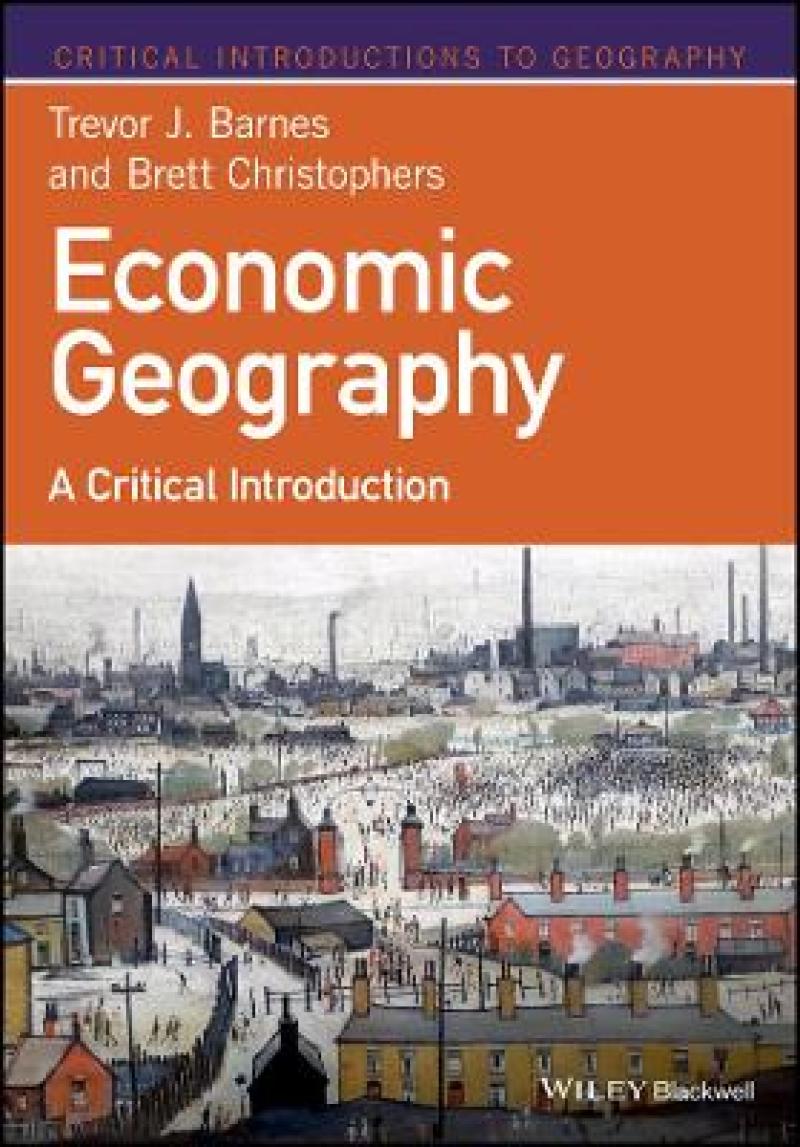This volume in the celebrated Critical Introductions to Geography series introduces readers to the vibrant discipline of economic geography. The authors provide an original definition of the discipline, and they make a strong case for its vital importance in understanding the dynamic interconnections, movements, and emerging trends shaping our globalized world. Economic Geography addresses the key theories and methods that form the basis of the discipline, and describes its “communities of practice” and relations to related fields including economics and sociology. Numerous illustrative examples explore how economic geographers examine the world and how and why the discipline takes the forms it does, demonstrating the critical value of economic geography to making sense of globalization, uneven development, money and finance, urbanization, environmental change, and industrial and technological transformation. Engaging and thought-provoking, Economic Geography: A Critical Introduction is the ideal resource for students studying across a range of subject areas, as well as the general reader with an interest in world affairs and economics.
Les mer
Acknowledgments vi List of Figures vii 1 Why Economic Geography Is Good For You 1 Part I Thinking Critically about Economic Geography 23 2 What Is Economic Geography? 25 3 Inventing Economic Geography: Histories of a Discipline 50 4 Economic Geography and its Border Country 76 5 Theory and Theories in Economic Geography 107 6 Method and Methodology in Economic Geography 132 7 Unboxing Economic Geography 156 Part II Doing Critical Economic Geography 185 8 Globalization and Uneven Development 187 9 Money and Finance 211 10 Cities and Urbanization 235 11 Nature and the Environment 261 12 Industrial and Technological Change 282 13 Conclusion 304 Index 314
Les mer
"Two of economic geography's most gifted practitioners here offer an analysis of their sub-discipline full of insight, verve, and attitude. Their wide and deep understanding of economic geography as a heterodox, contested field of knowledge allows them to show there is no one 'right' way to understand its substantive foci, such as international trade or regional economic decline." Noel Castree, Professor of Geography, University of Wollongong, Australia "In an era when the term economic geography is bandied about, evacuated of any clear meaning, this book provides students with a trenchant introduction to this academic discipline, and thus to how its practitioners make sense of major features of our contemporary world. Path-breaking, ecumenical, acknowledging warts and exhuming bodies, and insightful about topics ranging from global finance to Alaska pollock, it engagingly narrates the meaning of contemporary Anglophone critical economic geography." Eric Sheppard, Humboldt Chair and Professor of Geography, UCLA, USA "This is a new and remarkably refreshing way of writing an economic geography textbook. It starts with 'the basics,' but not the usual basics. Instead, there is a discussion of critical thinking and another section that looks at 'what is theory and what does it do.' Why didn't anyone think of this before? It will be a huge help to students and professors alike. I learned a lot from it." Erica Schoenberger, Professor of Geography, John Hopkins University, USA This volume in the celebrated Critical Introductions to Geography series introduces readers to the vibrant discipline of economic geography. The authors provide an original definition of the discipline, and they make a strong case for its vital importance in understanding the dynamic interconnections, movements, and emerging trends shaping our globalized world. Economic Geography addresses the key theories and methods that form the basis of the discipline, and describes its "communities of practice" and relations to related fields including economics and sociology. Numerous illustrative examples explore how economic geographers examine the world and how and why the discipline takes the forms it does, demonstrating the critical value of economic geography to making sense of globalization, uneven development, money and finance, urbanization, environmental change, and industrial and technological transformation. Engaging and thought-provoking, Economic Geography: A Critical Introduction is the ideal resource for students studying across a range of subject areas, as well as the general reader with an interest in world affairs and economics.
Les mer
Produktdetaljer
ISBN
9781118874325
Publisert
2018-01-04
Utgiver
Vendor
Wiley-Blackwell
Vekt
658 gr
Høyde
242 mm
Bredde
170 mm
Dybde
20 mm
Aldersnivå
UU, 05
Språk
Product language
Engelsk
Format
Product format
Heftet
Antall sider
336
Biographical note
Trevor J. Barnes is Professor of Geography and Distinguished University Scholar at the University of British Columbia, Vancouver, Canada. He is the author of more than a 150 journal articles and edited chapters, and the author or editor of a dozen books.
Brett Christophers is Professor of Geography at Uppsala University and the author of four previous books including The Great Leveler: Capitalism and Competition in the Court of Law (2016) and Banking Across Boundaries: Placing Finance in Capitalism (2013).
